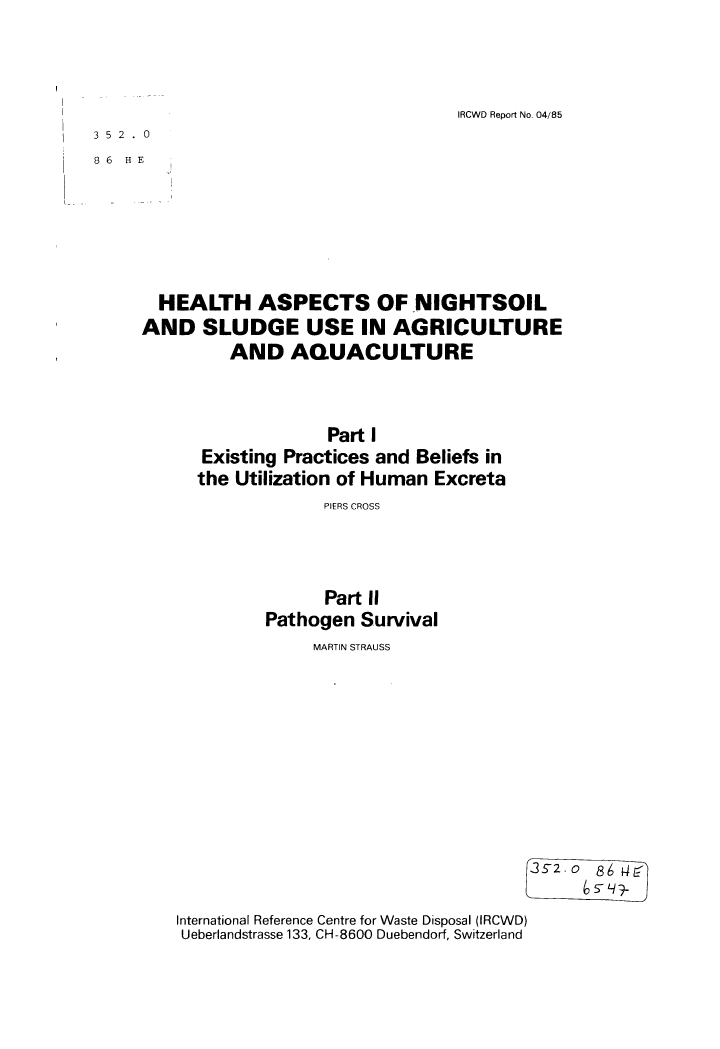Health Aspects of Nightsoil and Sludge Use in Agriculture and Aquaculture Cross, P., Strauss, M. (1985)
Excreta constitute a valuable source of nutrients. In many countries (e.g. China, Taiwan, Japan, Korea, Indonesia) they are traditionally and widely used to fertilize fields and ponds where fish and aquatic vegetables are grown. In these areas, faecal wastes carry considerable economic importance. This may increase in the years to come elsewhere too as a result of the growing cost of mineral fertilizers (unaffordable to many farmers) and increasing demand for basic food supplies.
Bibliographic information
Cross, P., Strauss, M. (1985). Health Aspects of Nightsoil and Sludge Use in Agriculture and Aquaculture International Reference Centre for Waste Disposal, Dübendorf, Switzerland.
Filter / Tags
Faeces or faecal sludgeEnglishFertiliser
Downloads
Health Aspects of Nightsoil and Sludge Use in Agriculture and Aquaculture
Type: application/pdf
Size: 8.17 MB

